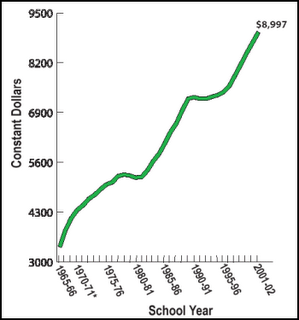I'm no fan of people who abuse or kill wildlife without just cause. Hunting is one thing; so is shooting a mountain lion that's about to take a piece out of you or a coyote that's about to have your cat for lunch. I think the pigeon fanciers -- owners of unique roller pigeons -- who
killed large numbers of rare raptors in defense of their prized birds stepped over the line. Their motives were understandable, but they went too far.
But going farther still were the federal agents who went undercover to actually infiltrate roller pigeon clubs, prowled around suspects' homes at night in full commando regalia and arguably induced suspects to commit crimes above and beyond those they'd done of their own accord.
Undercover police work has a long and dishonorable history. Undercover officers have
infiltrated peaceful
anti-war protests and
political organizations and often acted as
agents provocateurs -- engaging in or provoking illegal activity to give the authorities an excuse to move in and make arrests. Laws against victimless activities like drug use and prostitution almost
require the use of undercover agents to induce people to engage in activities that would otherwise go undetected. Since such "crimes" are consensual, there's no wronged party to file a complaint -- unless a police officer covertly engages in a forbidden transaction.
So there's good reason to be leery of people like Ed Newcomer.
Newcomer is the "hero" of a May 2008
Backpacker magazine article about the operation leading to the arrest of the above-mentioned pigeon-fanciers. He's a U.S. Fish and Wildlife Service Special Agent and former prosecutor who specializes in undercover operations -- a revelation to those of us who had no idea the game and fish folks needed or should be permitted to run surveillance and infiltration operations. For months he posed as a novice pigeon fancier. Once inside, he befriended pigeon fanciers, learned of the often brutal techniques they used to kill raptors who preyed on their birds, induced them to sell him restricted traps -- and then slapped the cuffs on them.
To infiltrate Southern California's pigeon breeding circles, Newcomer made himself into Ted Nelson, a blue-collar worker with a mustache straight out of My Name is Earl. Through a roller pigeon website, Newcomer made contact with a fancier who invited Ted to a show. That weekend, dozens of members of the Inner City Rollers Club gathered in an alley behind The Pigeon Connection, a bird shop near Inglewood, to check out each other's pigeons. Newcomer wired himself up--"I can't tell you the specifics," he told me, "but video cameras these days are so small you can practically stick one on your wristwatch -- and walked in.
Newcomer's tactics degenerate from there, turning into an object lesson in everything that's wrong with American law-enforcement.
To get proof of McCormick baiting his traps, Newcomer and another agent, John Brooks, staked out his house at night. Armed with AR-15 rifles, Newcomer and Brooks donned camouflage suits and used night-vision scopes to crawl across an empty field adjacent to McCormick's yard. ...
To nail McGhee, Newcomer arranged to by a hawk trap from him in the fall of 2006. In wildlife cases, suspects so often use ignorance as an excuse -- I didn't know it was illegal to kill those hawks -- that U.S. Fish and Wildlife Service agents often coax statements of legal awareness out of unwitting suspects ...
On their way out, Jojola noticed garbage cans sitting by the curb of Navarro's street. "Going through the trash is one of the best and most-under-utilized investigative tols," Jojola later told me. "It's a lot of work, though, and there's a risk of being burned." ("Burned" is undercover cop talk for getting recognized as a police officer.)
Newcomer and Jojola found nothing but trash and pigeon waste on that first garbage run, but a week later Newcomer and special agent Ho Truong hit pay dirt. At the bottom of Navarro's can, Truong discovered a dead Cooper's hawk. The bird, tied up in a white plastic bag, had been beaten to death. The next morning, Newcomer examined the surveillance photos. They showed Navarro, with a wooden stake in his hand, approaching the trapped hawk. The next photo showed an empty, re-baited trap, and Navarro holding a lumpy white plastic bag.
Remember, all of this effort, including multiple undercover agents, surveillance cameras, covert armed expeditions and trash-picking, is to catch hobbyists who are being overly aggressive in defense of their pigeons. We can only hope so much effort and expense is going into the effort to find Osama bin Laden.
So who are these undercover agents? What kind of people engage in covert surveillance of peaceful strangers as a career choice? There are any number of things that can lead people to a life in law enforcement, such as careerism, a desire to exercise power over other people, honest belief in the law in and of itself, or a true-believer devotion to a cause that can be pursued on the taxpayers' dime. But what drove the undercover agents in the roller pigeon case?
In the
Backpacker article, Newcomer, at least, comes across as a serious nature-lover who takes wildlife photographs as a hobby and disdains those who violate game and fish laws.
"There are no informants among animals," says Newcomer. "A mother bear can't call me up when somebody poaches her cub."
But, for an undercover agent, Newcomer isn't that far undercover. He maintains a
personal Website (since removed) that includes photos of a trip to Yellowstone. Another
personal Website (since removed) is devoted to Tae Kwan Do and features a smiling photo of him in a suit and eyeglasses.
He also posts videos on YouTube. A couple have wildlife themes, one
homemade cartoon features "
Spy Guy" (since removed) peering around a corner with gun in hand, while "
Overheated Planet" (since removed) is another homemade cartoon earnestly warning of the supposed dangers of global warming (Didn't he get Al Gore's memo that "global warming" is now "climate change?").
Newcomer also gives lots of
law-school talks on the enforcement of environmental laws.
Overall, Newcomer comes across as a serious fellow who likes to kick butt and is a committed environmentalist -- a combination of a true believer and a person who enjoys wielding the power of the state.
That's probably the right sort of person to send undercover against terrorists and other folks who pose a violent threat to life, liberty and property, but is it really so wise to hand a true believer a fake identity and send him out against petty law breakers?
Let's look at it another way. Let's suppose we sent Ann Coulter undercover against anti-war demonstrators who might be toying with petty mischief. Is there any doubt that Special Agent Coulter, who already loathes the beliefs and the culture of the people she's investigating, would come back with reports of serious crimes?
Likewise, sending a committed environmentalist undercover against people of whom he's already likely to be suspicious -- hunters, fishermen and people simply on the other side of wildlife issues -- is just begging for trouble. The temptation to take "bad people" down with extraordinary tactics is going to be hard to resist. And the ability to detect casual lawbreaking that many people must engage in during the conduct of everyday life in a highly regulated society can easily turn into a record of a pattern of criminality among people he dislikes. That threat to spy on and ensnare people in any area of life becomes a powerful weapon with which the state can inspire fear and coerce submission -- or breed resentment -- among people who just don't know whether the new guy is a state agent sent to catch them violating any one of the myriad of laws in which modern life is tangled.
In
Backpacker:
"Are there undercover agents still out there?" I asked.
Ed Newcomer leaned back in his chair and smiled. "Who knows?" he said. "Maybe there are."
That's a threat of total surveillance. And that's why undercover work should be confined to the investigation of
extraordinary dangers that pose an imminent threat to life and limb.
People who kill wildlife without just cause are worthy of attention. But there are very few crimes so heinous that they justify the use of undercover investigations that threaten liberty and privacy.
Labels: government out of bounds, kop kapers





